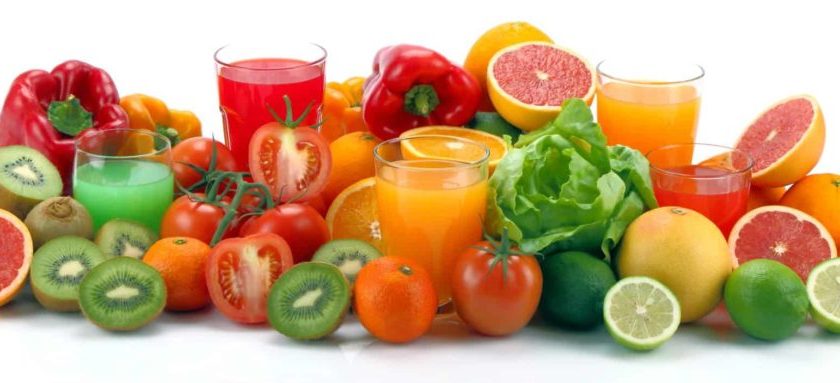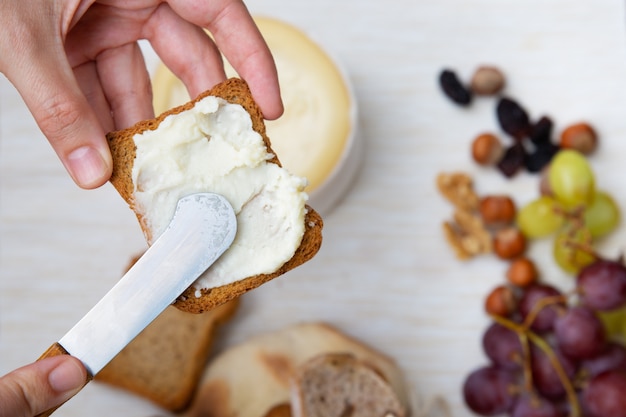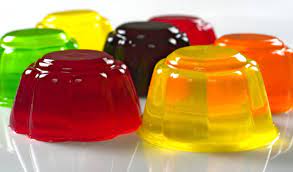The vibrant and colorful world of fruit beverages is as diverse as it is delicious. Ranging from tangy citrus concoctions to fragrant berry infusions, these delightful drinks cater to an array of palates. It’s an exciting category of beverages that is subject to continuous innovation and experimentation. But how well do you know your fruit refreshments? Let’s delve into the thrilling assortment of fruit-derived beverages.
A deeper look into this dynamic assortment of beverages will reveal that they are not just simple thirst quenchers. Every fruit beverage carries a distinct set of nutritional benefits, taste profiles, and even cultural significance. From the vitamin-packed goodness of orange sips to the rare and luxurious pomegranate potions, every glass tells a different story.
Understanding the multitude of fruit beverages can make your food and drink experience more engaging and enjoyable. Whether you’re a food connoisseur, a health enthusiast, or simply someone who enjoys a good drink, learning about the different types of fruit beverages can prove to be both interesting and beneficial.
So, let us embark on a journey to uncover the many types of fruit juices, their unique attributes, and the joy that each one can bring to our taste buds. Get ready to raise your glass and toast to a world of fruity delight!
Exploring the Diversity of Natural Fruit Beverages
The world of natural fruit beverages is surprisingly diverse and extends far beyond the common orange or apple juices we are so familiar with. Their variety is as extensive as the variety of fruits themselves, often categorised by the varying processing methods and the type of fruit used.
Each type of fruit beverage not only provides a unique flavor, but also different nutritional benefits. Ranging from boosting your immune system to aiding digestion, fruit juices are a delicious and easy way to keep your body healthy. Let’s delve deeper into the assorted varieties that are available.
Fruit Beverages: An Assortment of Tastes and Health Benefits
The most recognizable and commercially available juices are citrus fruit juices namely, orange, lemon, lime, and grapefruit. These juices are well-known for their high vitamin C content, helping reinforce immunity and promote skin health.
Then there are berry juices such as strawberry, blueberry, and cranberry juices. They are rich in antioxidants, fiber, and vitamin C, and are often associated with reducing the risk of heart diseases and improving memory.
Other popular non-citrus choices include apple cider, pineapple juice, cherry juice, and pomegranate juice which are all nutritious in their own unique ways, providing various vitamins, antioxidants, and minerals.
However, this only scratches the surface of the variety available. When you delve into the world of tropical fruit juices, you will find an exotic array of options such as mango, papaya, coconut water, and passionfruit, each with their unique flavor profiles and health benefits.
- Mango juice – High in vitamins A and C, it assists in promoting eye health and bolstering the immune system.
- Papaya juice – Contains papain, a digestive enzyme along with fiber which aids in digestion.
- Coconut water – Loaded with electrolytes and minerals making it a healthy natural hydrating drink.
- Passion fruit juice – High in antioxidants and dietary fiber, helping in regulating the digestive system and maintaining a healthy heart.
Furthermore, there are also blended fruit juices, which bring together different kinds of fruits into a single refreshing drink that combines the benefits and flavors of all its constituents. Hence, there are endless combinations in the realm of fruit beverages, and every flavour offers unique health benefits and enjoyable taste experiences.
Experience the Delight of Directly-Extracted Fruit Juices
Imagine biting into a juicy, ripe apple. Now, imagine the same experience but distilled into a refreshing beverage, minus the peeling and chewing. This is what you get from directly-extracted fruit juices or, as most people love to call them, freshly-pressed juices.
Not only do they deliver a heavenly flavor that envelopes your taste buds and brings them to life, but they also pull you into nature’s lap, making you revel in the richness and diversity it boasts of. Every sip is like a splash of sunshine, a breath of pure, moreish delight, taking you on a journey through orchards teeming with healthy and succulent fruits.
Unlocking the Freshness and Nutritional Value
Unlike from-concentrate juices or the ones that sit on supermarket shelves for weeks, if not months, freshly-pressed juices demand a strict adherence to freshness. These juices are obtained straight from the fruits, with the pressing process ensuring minimum loss of nutrients and maximum flavor possession. Each bottle or glass thus stands as a bulwark of uncontaminated taste and uncompromised health benefits.
- Apple Juice: Apple, often hailed as a ‘nutritional powerhouse’, provides a sweet and slightly tangy juice. Full of antioxidants, its juice aids digestion and boosts the immune system.
- Orange Juice: Synonymous with a loaded dose of Vitamin C, it also offers potassium and thiamine, contributing to your daily dose of essential nutrients.
- Grape Juice: Rich in antioxidants, grape juice is known for its heart benefits. The sweet-tart taste perfectly balances the sweetness of other juices.
In conclusion, freshly-pressed juices allow us to savor nature’s largesse in its purest form. These invigorating fluids offer not only an explosion of flavors but also a boon of health, thereby making them a wholesome and irresistible choice for all ages. So the next time you’re in the mood for a beverage, make it a glass of freshly-pressed juice, and treat your taste buds to the undiluted and unmatched splendor of nature’s bounty.
The Rise of Concentrated Fruit Juices in the Global Market
One prominent development within the realm of fruit beverages that has drastically impacted our supermarket aisles is the advent of concentrated fruit juices. Their rise to prominence is heavily driven by their convenience and extended shelf-life, making them a personal favourite of modern-day consumers worldwide.
As our lives become ever more hectic, the appeal of these easy-to-prepare, on-the-go options grows significantly. Concentrated fruit juices offered a whole new level of convenience that was unmatched by their fresh counterparts. Not only did they save time and effort, but their longer shelf life also reduced the possibility of waste. These factors combined turbocharged their acceptance across households worldwide.
The Journey from Fruit to Carton
The production and distribution of concentrated fruit juices are a fascinating, multi-step process. It entails extracting the juice from the fruit, evaporating most of the water content to create a dense concentrate, and finally, packaging the product for transport. At the consumer’s end, the process is reversed. Water is added back into the concentrate, converting it back into juice.
This ability to reconstitute the juice from concentrate has made it quite a favourite with busy families. The concentrates are light to carry, easy to store, and can be prepared as per need, reducing waste significantly.
The Allure of Variety and Taste
One cannot ignore the extensive variety offered by concentrated fruit juices. From exotic pineapple or mango flavors to the common apple and orange, the variety is truly remarkable. Furthermore, the taste, when properly reconstituted, can often mimic the experience of consuming fresh juice.
- Apple
- Orange
- Pineapple
- Mango
- Cranberry
Not only do they offer taste and variety, but their easy storage has also allowed manufacturers and distributors to conquer supermarket shelves across the globe. Fast consumption, easy replenishment, and extensive variety have made concentrated fruit juices the champion of supermarket juice aisles.
To sum up, the convenience offered by concentrated fruit juices has made it a household staple and an essential item on supermarket shelves worldwide. It is a manifestation of the modern consumer’s quest for convenience, taste, variety, and value in every product consumed.
Discovering the Exquisite Juices of Eastern Fruits
When exploring the wonders of the Eastern world’s culinary sphere, the captivating sweetness, rich colors, and enchanting aromas of the exotic fruits juices often remain an unsurpassed experience. These tropical delights, not only tempt your taste buds but also offer an array of nutritional benefits, making them an excellent addition to your wellness regimen.
From the fragrant scent of the Lychee to the robust flavor of the Durian, the Eastern world’s array of exotic fruits introduces a unique combination of taste and health. Transforming these fruits into juices or smoothies serves as an ingenious way to enjoy their overwhelming goodness in a palatable form.
A Glimpse into the Eastern Exotic Fruit Juices
Moving past the traditional juices, let’s excavate the deliciousness hidden in some often lesser-known Eastern fruits.
- Dragon Fruit Juice: The Dragon fruit, also known as Pitaya, is rich in Vitamin C and offers a refreshing, smooth taste. The juice from this bright pink fruit makes for a visually appealing and delightful drink.
- Ginger Juice: The Ginger root is renowned in Eastern medicine for its powerful medicinal properties. Its juice is characterized by a strong, spicy taste and is typically used in combinations with other fruit juices.
- Passion Fruit Juice: Recognized for its intriguing fragrance, the Passion fruit juice carries a robust flavor profile, teetering between sweet and sour. This juice is known for being abundant in Vitamin A, C, and dietary fibers.
- Guava Juice: A popular choice in South East Asia, Guava juice is celebrated for its invigorating sweet and tangy flavor. What’s more, it’s rich in Vitamin C and dietary fiber, promoting overall health.
These veritable treasure troves of health and taste can be readily enjoyed alone or blended together, cast into a refreshing cocktail, brewed into a hot infusion, or stirred into a mouthwatering smoothie. Next time you’re thinking of a refreshing, healthy drink, remember these vibrant juices of mirth and health emanating from the East.
To truly savor the extravagant flavors of the East, one doesn’t have to go beyond the realm of fruit juices. The plethora of options available offer a colourful whirlpool of tastes, tempting even the most discriminating palates while adding numerous nutritional benefits.
An In-Depth Look at Cold-Pressed Juices: The Contemporary Elixir of Health and Wellness
In our fast-paced modern world, maintaining a healthy lifestyle can sometimes feel like a challenge. Nevertheless, individuals are incessantly seeking nutritious yet convenient ways to nourishing their bodies. One such trend that has continued to gain momentum in recent years is the consumption of cold-pressed juices. These refreshing beverages are typically made by extracting juice from fruits and vegetables through the application of thousands of pounds of pressure, thus ensuring maximum nutrient retention.
Unlike standard juicing methods, which often involve heat and introduce air into the process, cold-pressed methods extract juice without exposing it to these damaging elements. As a result, each sip of such a juice offers a vibrant concentration of vitamins, minerals, and phytonutrients.
Benefits of Consuming Cold-Pressed Juices
One of the salient reasons why these beverages have become an integral part of many health enthusiasts’ regimen is due to their potent concentrations of health-boosting nutrients. According to numerous health experts, the high nutrient density of these drinks supports overall wellness in numerous ways, from boosting the immune system to aiding digestion to lending to glowing skin.
Additionally, these juices often pack in a substantial amount of fruits and vegetables in a single serving, making it easier for individuals to meet their daily recommended intake of these vital food groups. To elucidate, a single 16-ounce bottle of cold-pressed juice can contain up to six pounds of produce, according to some estimates.
- Room for Creativity: Moreover, the world of cold-pressed juicing invites room for creativity, ensuring there’s always something for everyone. From leafy greens, beetroot, ginger, and lemon to tropical fruits such as pineapple, mango, and coconut water, the flavor combinations are endless, thus ensuring a healthy and flavorful journey towards wellness.
- Nature’s Hydrating Elixir: These juices can also serve as a hydrating treat to beat the summer heat. Unlike carbonated drinks laden with artificial sweeteners and colors, cold-pressed juices serve as nature’s wholesome and hydrating elixir, void of any preservatives and additives.
- A Healthy Ritual: Integrating daily consumption of these juices can potentially serve as a healthy ritual, paving the way for a more balanced lifestyle. This can be especially beneficial for those individuals who lead hectic lives and often struggle to include ample amounts of fruits and vegetables in their daily diet.
In conclusion, the rising popularity of cold-pressed juices is merely not a passing trend but a reflection of people’s evolving consciousness about their health and the choices they’re making towards it. With the abundance of health benefits they offer, these juices indeed deserve the limelight they have been receiving.
Creating Exciting and Nutritious Combinations of Fruit Juices
Mixing fruit juices can be a fun and inventive way to enjoy the amazing flavors that nature has to offer. Furthermore, it’s not just about the taste; combining different types of juices can increase nutritional content, resulting in beverages that are not only delicious but also truly beneficial to your wellbeing.
Combining sweet with savory, or perhaps tart with a touch of sweetness, can take your taste buds on a lovely culinary journey. But remember, the goal is not only pleasure but also nutrition. Thus, knowledge of the kinds and amounts of nutrients in your fruits is crucial to making a healthful drink.
The Art of Blending Fruit Juices
Firstly, always have in mind the fruits that blend well together to create an enjoyable taste. For instance, mixing the sweetness of apple juice with the tartness of pomegranate can give an exquisite balanced taste. Or combine the savory taste of tomato with the tanginess of pineapple to surprise your palate.
To protect your health as you enjoy these mixtures, be aware of sugar content. Some fruits are high in natural sugars, so moderating consumption and preferring fresh homemade versions over processed juices can help maintain fitness.
- Mixed Berries Juice: A blend of strawberries, blueberries, and raspberries packs your drink with antioxidants, vital for your immune system health.
- Orange and Carrot Juice: Loaded with vitamin C and beta carotene, this mix can assist in improving eye health.
- Apple and Ginger Juice: This combination isn’t just flavorful but also aids in digestion.
Moreover, as some nutrients are more absorbable in the presence of others, mixing your fruit juices can result in a synergistic nutritional boost. Vitamin C helps the body to absorb iron more efficiently, so combining iron-rich and vitamin-C-rich juices, like spinach and orange juice, could optimize your nutrient intake.
In conclusion, creating your fruit juice combinations can be a delightful journey, opening your world to thousands of flavor pairings. It allows you to take control of your nutrition, blending and balancing vitamins, minerals, and other nutrients, enhancing your health while deliciously quenching your thirst.
FAQ: Types of Fruit Juice
What is the difference between drinking a whole fruit and a juice drink?
Whole fruit provides natural fiber content which can be beneficial for digestion, while a juice drink may not contain the same level of fiber and might have added sugars.
How does fresh fruit compare to prune juice in terms of nutritional value?
Fresh fruit typically offers a broader range of vitamins and minerals, while prune juice is also a good source of fiber and can aid in digestion.
What are some health benefits of grapefruit juice?
Grapefruit juice is a good source of vitamin C and may also help support heart health. However, it’s essential to ensure the juice is 100 percent juice without added sugars.
Why do some people prefer their juice with pulp while others dilute it?
Pulp provides texture and can enhance the fiber content in juice. Some people enjoy the texture, while others dilute their juice to get a smoother consistency.
What’s the nutritional advantage of tomato juice over other beverages?
Tomato juice contains lycopene, which gives tomatoes their red color and may support heart health. It’s also a good source of vitamin C and potassium.
Is it better to drink fresh fruit juice or vegetable juice for vitamins and minerals?
Both fresh fruit juice and vegetable juice are good sources of nutrients. However, vegetable juices might have a lower source of sugar compared to some fruit juices, while fruit juices like lemon juice and strawberry juice are high in vitamins like vitamin C.
Why is it recommended to make juices at home instead of buying them from stores?
Making juice at home ensures that the juice is 100 percent pure fruit or vegetable without added sugars or preservatives. Store-bought juices might contain added sugars and might not be 100 percent juice.
How does black grape juice benefit our health?
Black grape juice is rich in antioxidants that combat free radicals in the body. It’s also a good source of vitamin K and might support heart health.
Can drinking fruit juice, like watermelon juice or amla juice, have an effect on blood sugar levels?
Yes, drinking fruit juice can raise blood sugar levels, especially if the juice contains a high amount of sugar or if it’s concentrated juice. It’s essential to monitor intake and choose juices that don’t contain added sugars.
Are there any benefits of beet juice and pear juice for urinary tract infections?
While there’s some evidence that certain juices might benefit urinary tract health, it’s essential to consult with a food and nutrition expert. Beet juice and pear juice may also have other health benefits, but their direct effect on urinary tract infections needs further research.
What is the best fruit to use for making healthy juices at home, and why?
The best fruit to use for making healthy juices at home is blueberries. Blueberry juice is another excellent option because it is high in antioxidants, known to support overall health, and can be made purely from fruit pulp, ensuring no additional sugars or preservatives are added. Additionally, using fresh blueberries will provide the most nutritional benefits.
How many cups of fruit are typically needed in the juice production process to make a quart of juice at home?
Typically, it takes approximately 3 to 4 cups of fruit to make a quart of juice. However, the exact quantity can vary depending on the type of fruit used and the method of juicing. It’s always best to use fresh produce to ensure the highest nutrient content in your homemade juice.
How does the content of healthy juices differ when using different fruit combinations, and what are some considerations to keep in mind?
The nutritional content of healthy juices varies significantly when using different fruit combinations. For instance, some fruits are high in sugar, while others provide a rich source of potassium or other essential vitamins and minerals. When making juice, it’s crucial to balance fruits that are high in sugar with those lower in sugar to ensure the juice comes with maximum health benefits without unnecessarily high sugar content.
What factors determine whether a juice is good for health, and how does homemade juice compare to store-bought ones?
The healthiness of juice depends on several factors, including its sugar content, the presence of natural vitamins and minerals, and the absence of added preservatives or artificial ingredients. Homemade juice often has the advantage because you can control what goes into it, ensuring it contains the pure goodness of natural fruit without any unwanted additives. When you make juice at home, you also avoid pasteurization, a process that some commercial juices undergo, which may reduce certain nutrients.
Why is it important to use fresh ingredients in homemade juice, and how does the freshness of fruit affect the juice’s nutritional value?
Using fresh ingredients is crucial in homemade juice production because the nutritional value of the juice depends largely on the quality of the fruits used. Fresh fruits are likely to contain higher levels of nutrients compared to fruits that have been stored for a while. Additionally, fresh fruits provide the full flavor and nutrient spectrum that can sometimes get diminished in stored or processed fruits. This practice ensures that the juice is packed with the vitamins, minerals, and other beneficial compounds that promote overall health.








